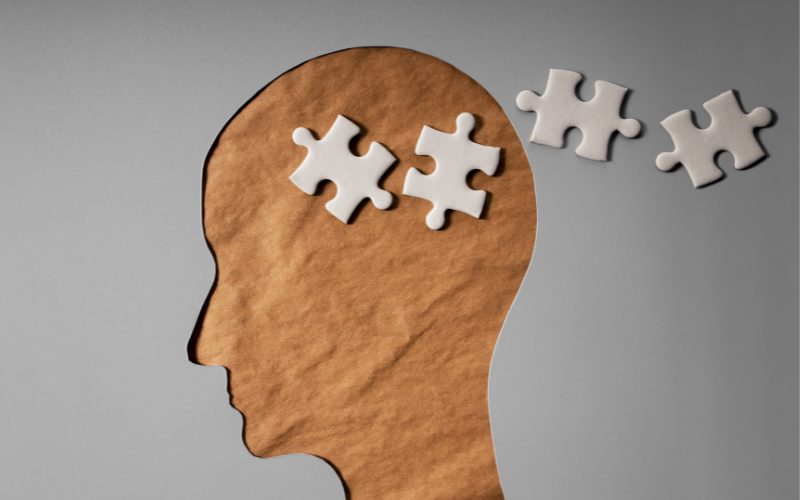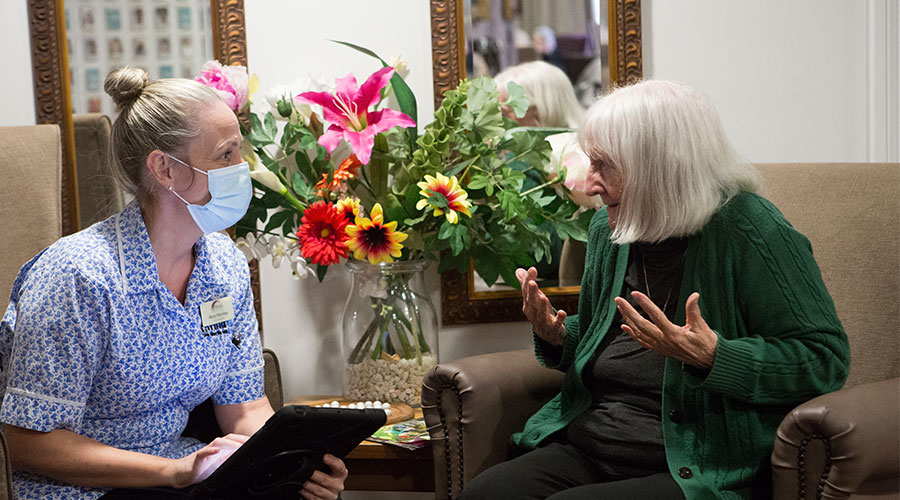Different Types of Dementia

The word dementia describes a group of symptoms that include short-term memory problems, language, and changes in perception, mood and behaviour. Despite these symptoms, some people living with dementia will retain many abilities including long-term memory.
There are many types of dementia with Alzheimer’s disease being the most common.
For some people living with dementia, the symptoms can gradually worsen over time. But there is a lot we can do to support someone living with dementia.
What causes dementia?
Dementia isn’t a natural part of aging, it’s caused when a disease damages nerve cells in the brain.
Nerve cells carry messages between parts of the brain and body. As more nerve cells are damaged, it means the brain can’t function properly.
Dementia can be caused by many different diseases which affect the brain in different ways - resulting in different types of dementia.
Types of dementia
Alzheimer’s Society say that ‘around 19 out of 20 people with dementia have one of four main types’. Dementia affects everyone differently, however each type has some common early symptoms.
You can also experience symptoms of more than one type, known as mixed dementia.
Alzheimer’s disease
Alzheimer’s disease is the most common type of dementia. A person living with Alzheimer’s Disease may have difficulties with learning new information, remembering recent events, difficulties with finding their way around familiar places and making decisions they used to make with ease.
Read information from Alzheimer’s Society on Alzheimer’s disease
Vascular dementia
Vascular dementia is the second most common type of dementia. Common early signs include problems with more advanced brain activity like organising, problem solving, and making decisions and plans.
Read information from Alzheimer’s Society on vascular dementia
Dementia with Lewy bodies (DLB)
Dementia with Lewy bodies (DLB) is caused by Lewy body disease. Symptoms include having difficulties staying focused, problems with movement, sleep, experiencing delusions (false beliefs) and hallucinations (seeing, smelling, tasting, feeling or hearing things that aren’t there).
People with Lewy bodies can also show signs similar to that of Parkinson’s Disease, such as shaking, difficulties with movement or walking.
Read information from Alzheimer’s Society on dementia with Lewy bodies (DLB)
Frontotemporal dementia (FTD)
Frontotemporal dementia (FTD) is one of the less common types of dementia and usually affects younger people. Sometimes it’s not until later on in the person’s FTD, that their short-term memory becomes effected.
Common symptoms include changes to personality and behaviour and/or difficulties with language.
Read information from Alzheimer’s Society on frontotemporal dementia (FTD)
Other support available
- Call the Alzheimer’s Society Dementia Connect support line on 0333 150 3456 Or if you speak Welsh, call the Welsh-speaking support line on 03300 947 400. (Monday to Wednesday: 9am – 8pm, Thursday and Friday: 9am – 5pm, Saturday and Sunday: 10am – 4pm).
- Sign up to Talking Point, an online community for anyone affected by dementia. You can share experiences and get support 24/7.
- Dementia UK have a free dementia helpline on 0800 888 6678 (Monday to Friday: 9am-9pm, Weekends 9am-5pm).
- MHA Dementia training – attend our free 1.5 hour Zoom training sessions
Page last updated: September 2023.
MHA in your community
Find the care home, retirement community, or support group that’s right for you

